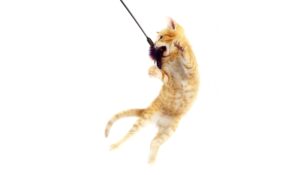COVID-19: Trupanion, PIJAC Monitor Pet Health Data
Pet Age Staff //March 4, 2020//
Press releases: Trupanion and Pet Industry Joint Advisory Council
Trupanion, a leading provider of medical insurance for cats and dogs, confirmed March 1 that they have seen no unusual increase or change in the frequency of illnesses in their extensive pet health database. The Seattle-based pet company, now in its third decade, has paid out over $1 billion in veterinary invoices and is constantly reviewing data to monitor changes in veterinary medicine to understand any underlying changes related to regular illness patterns.
Vice president of analytics Mary Rothlisberger, confirmed: “We monitor our data on a very granular level; daily, weekly and monthly and by breed, country, city and even at a neighborhood level to make sure we understand and are on top of any health-related trends that might be out of the norm. As of today, we have not seen any increases or changes in the frequency of illnesses that would appear unusual.”
Dr. Steve Weinrauch, BVMS, MRCVS, Trupanion’s chief veterinary officer, explained: “With the recent news regarding a pet dog in Hong Kong being quarantined after testing ‘weak positive’ for COVID-19, we have experienced increasing concern from our members regarding the health of their pets. We want to provide them and other loving pet owners with some peace of mind. We understand that a pet is a member of the family, and it’s natural to be worried for all of your loved ones.”
The U.S. Centers for Disease Control and Prevention (CDC) have further confirmed that no animals in the United States have been identified with the virus and there is no evidence to suggest that dogs, or other pets can contract or spread COVID-19.
Just as it has for the last 20+ years, Trupanion wants to continue to reassure existing or new members that coverage includes any medical issues that occur after enrollment and that our team is on hand 24/7 to support any questions they may have.
Weinrauch continues: “It is important to Trupanion that we make sure everyone has the latest information in terms of what we see show up in our data. If things do change, we will be letting members, pet owners and veterinarians know immediately. In the meantime, as always, if there’s ever anything that you’re worried about and you notice your pet acting under the weather, you should visit your trusted veterinarian.”
Meanwhile, the Pet Industry Joint Advisory Council has been closely monitoring the news reports of COVID-19 infections around the world, especially for any that reference pets. PIJAC received the following information from the CDC:
- On February 28, the Hong Kong Agriculture, Fisheries and Conservation Department (AFCD) reported that a pet dog that had contact with a person infected with COVID-19 tested “weak positive to COVID-19” through nose and mouth samples.
- AFCD reports that this dog does not have any symptoms of illness and the dog is currently being monitored in quarantine.
- Repeat testing of this dog will be conducted during quarantine to help determine if the dog has really been infected or not.
- CDC is working with human and animal health partners to monitor this situation and will continue to provide updates as information becomes available.
- AFCD official report available here.
- To date, CDC has not received any reports of pets or other animals becoming sick with COVID-19. At this time, there is no evidence that pets, including dogs, can spread COVID-19.
- There is no reason to think that any animals, including pets, in the United States might be a source of infection with this new coronavirus. However, it is important to include pets in your family’s preparedness planning efforts including having a two-week supply of pet food and pet medicines available.
- For more information on preparing for your pet, click here.
- Since other infectious diseases can spread between animals and people, it’s always a good idea to wash your hands after being around animals or handling animals, their food, or supplies.
- For more information on staying safe and healthy around animals including pets, livestock, and wildlife, visit CDC’s Healthy Pets, Healthy People website.



















